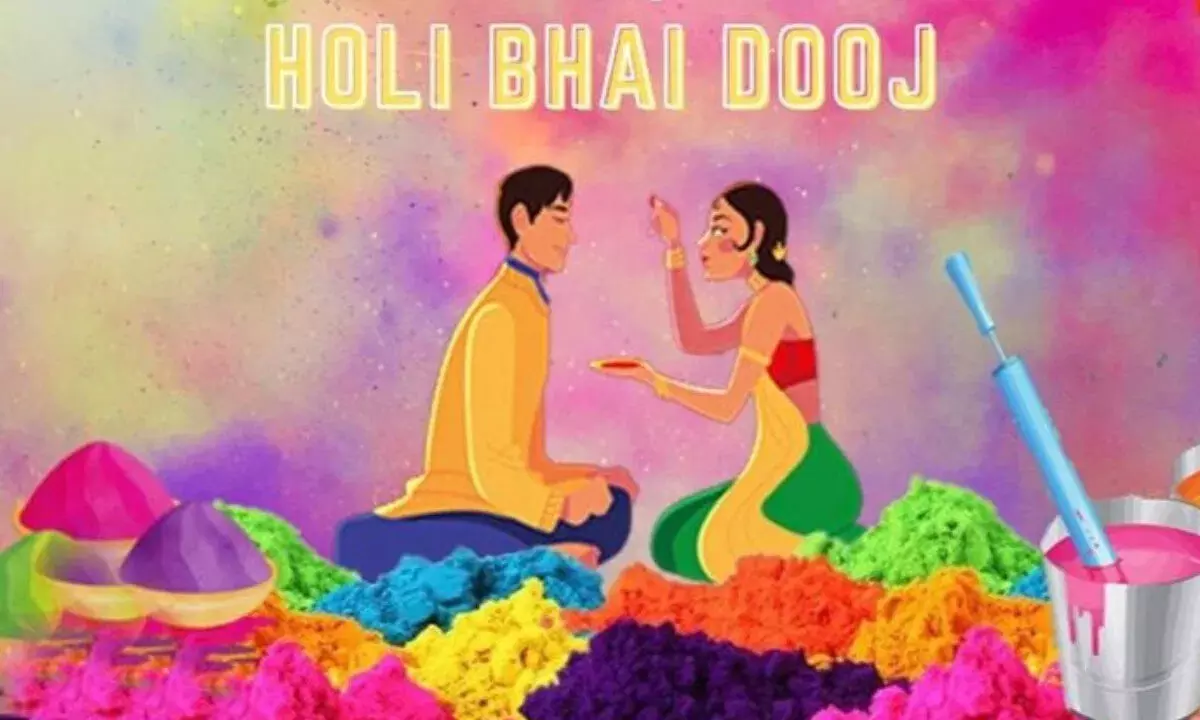Holi Bhai Dooj 2024: Shubh Muhurat, History & Significance

Holi Bhai Dooj, a lesser-known yet significant Hindu festival, commemorates the bond between brothers and sisters.
Holi Bhai Dooj, a lesser-known yet significant Hindu festival, commemorates the bond between brothers and sisters. Falling on the second day of the Dwitiya Tithi in the Hindu calendar, it holds historical and cultural significance. This year, Holi Bhai Dooj is slated to be celebrated on March 27, 2024.
Historical Roots and Emergence
Bhai Dooj, akin to Raksha Bandhan, venerates the sacred relationship between siblings. Mythologically, it traces back to various legends, one of which recounts the tale of Lord Yama, the god of death, visiting his sister Yamuna (the river) on Dwitiya during the Shukla Paksha of Kartik month.
Symbolism and Importance
Holi Bhai Dooj embodies the essence of familial bonds, urging individuals to treasure the affection and camaraderie shared among siblings. It underscores the values of love, respect, and reconciliation, emphasizing the significance of familial unity and forgiveness.
Rituals and Traditions
1. Commencement: The day typically begins with both the brother and sister partaking in a purifying bath.
2. Preparation of Puja Thali: Sisters assemble a puja thali comprising essential offerings such as a diya, roli, chawal, fruits, sweets, betel nut, and moli.
3. Tilak Ceremony: Central to the festivities is the application of tilak on the brother's forehead by the sister, accompanied by chants or prayers for his well-being and longevity.
4. Aarti Ritual: Following the tilak ceremony, an aarti is performed, involving the sister circling the puja thali with a lit diya in front of her brother.
5. Exchange of Sweets and Gifts: Sisters offer sweets and treats to their brothers, symbolizing affection and goodwill. In return, brothers may present gifts to their sisters.
6. Regional Variations: Depending on the region, customs may differ slightly. For instance, in Maharashtra, Gujarat, Goa, and Karnataka, the festival is known as Bhau Beej, where sisters may draw a square on the floor for the brother to sit during the puja.
7. Alternative Observances: In the absence of a brother, some sisters may perform aarti for the moon god Chandra as an alternative ritual.
Holi Bhai Dooj serves as a poignant reminder of the enduring bonds shared within families, particularly between siblings. Through rituals, prayers, and gestures of affection, the festival encapsulates the essence of familial love and solidarity, fostering cherished memories and strengthening familial ties.








